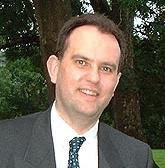Scientists have found that so-called neutral mutations are not as neutral as previously thought. Previous scientific theories considered neutral or silent mutations to have no effect on the expression of proteins. However, the latest research has shown that neutral mutations can have a serious negative effect on protein expression.
There are four types of nucleotides in the genome, labelled A,C,G,T, and every three letter sequence forms a codon, which codes for an amino acid. Four raised to the power three provides sixty-four combinations, but there are only twenty amino acids in the genome, as different codons are believed to code for the same amino acid. It was thought that silent mutations that change the letters of the codon, but do not change the amino acid have no effect on the way proteins fold and function.
However, the latest research by Kimchi-Sarfaty (2006) in
Science has shown that even neutral mutations can in fact cause changes in the way the protein folds and functions.[1] The researchers studied three mutations that can alter the way a specific protein pumps toxins out of the cell. Tests involving small changes in this protein have shown that when two of the silent mutations are present it can change the shape of the protein and change that way cancer cells resist chemotherapy. Tests in lab dishes showed that when the silent mutations were present the cell was able to more efficiently block the drug that is used to halt the cancer cell’s development. It would also seem that evidence for the negative effects of silent mutations have been known about for twenty years, but largely ignored.[2] This latest evidence also ties in with comments by John Sanford in
Genetic Entropy and the Mystery of the Genome [3] who claimed that even neutral mutations can have an accumulative degrading effect on the genome.
Other research has shown that silent mutations involved with the cystic fibrosis disease can alter the way a specific RNA molecule is spliced up and therefore change the shape of the protein rendering it inactive.[4] (RNA is involved in copying and translating the DNA and converting genes into proteins). Franciso Baralle comments that failure to identify the importance of silent mutations may have led to wrong diagnosis in some patients. It would seem that there is now a need to re-examine the effects that silent mutations have on genetic diseases and therefore improve medical research. Once again the theory of evolution has led to poor predictions in medical research.
As far as evolution is concerned the neutral theory was developed to overcome some of the problems associated with modelling genetics in evolution. J.B.S. Haldane for instance noted that in order for beneficial mutations to be fixed in a population, evolution by mutation must progress very slowly indeed. This slow process was considered necessary to give time for natural selection to weed out the far more numerous harmful mutations that would otherwise lead to error catastrophe in the population. There was also a very high cost in terms of excessive birth rates that higher vertebrates could not hope to meet, and Haldane saw in this a paradox that effectively falsified gradual neo-Darwinian theory. (See for instance: Walter ReMines,
The Biotic message)
The Neutral Theory was developed to try and overcome this paradox. As an example, if it is considered that about one in a thousand mutations are beneficial, with fifty percent harmful with the rest neutral, then an increase in the number of neutral mutations would reduces the harmful ones, and seemingly helps to overcome the paradox that Haldane identified.[5] However, this latest evidence, that these neutral mutations are not nearly as neutral as previously thought, does further serious damage to the neutral theory and to the theory of macro-evolution as a whole.
References
[1]. Kimchi-Sarfaty C., et al. (2006),
Science, doi:10.1126/science.1135308
[2]. See: Pearson, H., (2006), Silent mutations speak up,
Nature, 21st December 2006
http://www.nature.com/news/2006/061218/full/061218-12.html[3]. Sanford, J. C., (2005)
Genetic Entropy and the Mystery of the Genome, Ivan Press
[4]. Pagani F., et al. (2005)
Proc. Natl Acad. Sci. USA, 102. 6368 - 6372
[5] ReMines (1993)
The Biotic Message, St Paul’s Science, pp.237-253 shows that the neutral theory does not provide selective advantage and it too has a high cost.
